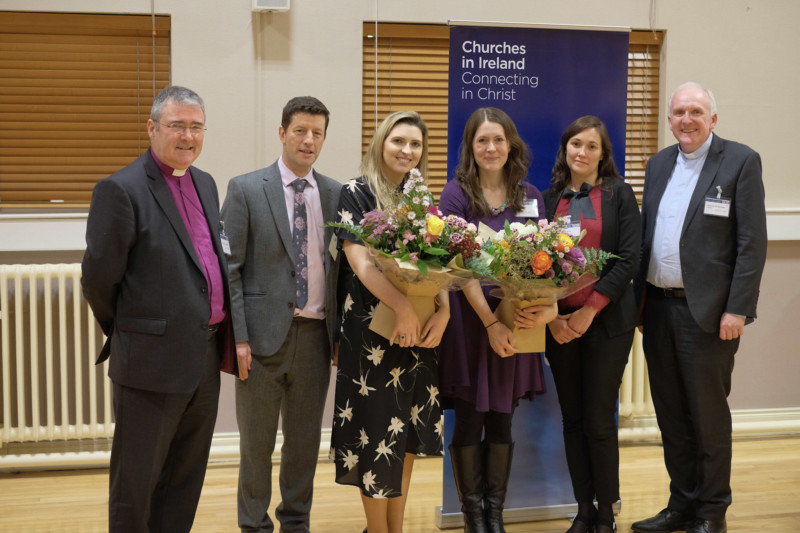The 28th Irish Inter–Church Meeting (IICM) took place last week on 23 and 24 November at the Dromantine Conference and Retreat Centre, Newry in the diocese of Dromore. The theme of the 2017 meeting was ‘Proclaiming Christ to Families Today’.
During the meeting representatives of 15 different Christian churches came together to reflect on how to engage with families as partners in the life and mission of the Church, and how Church communities can reach families facing difficulties and in need of care and support.
Guest speakers during the meeting included Father Timothy Bartlett, General Secretary of the World Meeting of Families; which will take place in August 2018 in Dublin; Caroline Bradley, Director of Care for the Family; Professor Gordon Harold, Professor of Child and Adolescent Mental Health; Noeline Blackwell, CEO of the Dublin Rape Crisis Centre; and Father Peter McVerry SJ, of the Peter McVerry Trust.
In their statement following the meeting, Co-Chairs of the IICM, Bishop Brendan Leahy, Bishop of Limerick, and Church of Ireland Bishop John McDowell, Bishop of Clogher, said that, ‘Families are the heart of the life and mission of the Church. The World Meeting of Families, which will be hosted by the Catholic Church in Ireland in 2018, provides a significant opportunity for us, as Christian churches in Ireland, to reflect together about how best to respond to the many and varied needs of families across the island of Ireland today. This year’s Irish Inter-Church Meeting combined many different layers of reflection, drawing inspiration from different academic disciplines and different areas of work. It was a dialogue, not just between churches, but between churches and the wider society. We are deeply indebted to all who gave the time to share their expertise and experience.’
They continued, ‘There was a strong focus throughout the meeting on our communications, both internal and external. We were encouraged by successive speakers to think about the ways in which families experiencing difficulties are prevented from getting the help they need because of stigma and shame. As Christians who believe in a God of compassion, we are well placed to provide a safe space for those who are struggling. We should not underestimate the value of simple gestures of compassion, kindness and acceptance.
‘At the same time, it is important to remember that for some people the family is not a safe place. We heard from those working on the frontline about the impact of physical, emotional and sexual abuse in the family and its devastating consequences. Churches can contribute to reducing this harm by communicating a strong message that the family needs to respect the human dignity of every individual member, and protect them from harm. People at risk need to know that the church community is there to support them.’
The bishops concluded, ‘In the family we learn the values that shape and inform our approach to living in society. It is where we develop our sense of solidarity and interconnectedness with the well-being of others. Where families are under pressure, parents struggle to find the time to invest in their children’s education and faith formation. New technology and social media, while bringing many benefits, can also be a significant obstacle to families spending quality time together, listening to each other and developing strong relationships.
‘Delegates came away from this meeting feeling both challenged and inspired. The family is the hope for the world and the well-being of families is critical for the future of Church and society. Churches and faith-based organisations are having a positive impact on the lives of families, but much more needs to be done to reduce the factors that leave families marginalised and at risk of harm. This requires us to work effectively together as churches, and in partnership with other sectors of society, to ensure that a positive vision for the family shapes and informs public policy.’
The full statement can be found on www.irishchurches.org.
The IICM is the formal meeting between the Irish Episcopal Conference and the Irish Council of Churches. It gathers senior church leaders and lay representatives from across 15 denominations in Ireland, bringing together the broad spectrum of Roman Catholic, Reformed, Migrant–led, Independent and Orthodox traditions. For more information, please see www.irishchurches.org.
ENDS


